Think government jobs are all about comfy desks and steady hours? That’s way off, especially when you look at the most difficult ones. Some government roles throw you into high-pressure situations, demand crazy-long hours, and test your patience every single day. The perks are real, but so is the stress—sometimes it’s like walking a tightrope with a crowd watching.
Let’s get honest: the toughest government jobs aren’t just about passing an exam. It's about surviving the grind after you get in. You deal with split-second decisions, unexpected challenges, and sometimes, public anger or dangerous conditions. For example, IAS officers can go from negotiating with protestors to handling disaster relief in just one day. Imagine having lives or thousands of people depending on you—no pressure, right?
So if you think you’re up for this level of challenge, you need more than sharp grades. You’ll need grit, the ability to keep learning, and a lot of self-care just to keep going. Later, we’ll break down what makes these jobs so tough and share tips to actually survive the prep—and the job once you get it.
- Why Some Government Jobs Are Tougher Than Others
- The Ultimate Test: Indian Administrative Service (IAS)
- Law Enforcement: Grit Over Glamour
- Defense Services: Real Risks, Real Sacrifice
- How to Prep for High-Pressure Government Jobs
Why Some Government Jobs Are Tougher Than Others
All government jobs aren’t created equal. Some are honestly just on a different level when it comes to pressure, unpredictability, and stakes. It’s not just about the job title—what really makes a government job the most difficult is a mix of responsibility, work environment, and public scrutiny.
Jobs like IAS, IPS, or defense services throw you into situations where you aren’t just following orders—you’re making the tough calls. You’re the person who’s blamed if things go sideways, whether it’s a flood response, a law and order crisis, or a border issue. The expectation? Stay calm, keep your head, and do your job, no matter what.
Let’s get real and look at what cranks up the difficulty:
- Insane Pressure: In top roles, one bad choice can grab headlines or even risk lives. That’s mental stress few people can imagine.
- Long Hours: Don’t count on 9-to-5. Emergency meetings, nighttime patrols, or sudden orders are part of the deal. Studies show IAS and IPS officers often work 10-14 hour days during crises.
- Huge Accountability: Everything you do is watched—sometimes by millions. Mess up, and your mistakes go public fast. Social media has made this even tougher in the last few years.
- Competitive Entry: Gunning for these toughest government jobs? The competition borders on brutal. The UPSC Civil Services Exam, for example, has a selection rate of less than 1%—that’s harder to crack than most Ivy League schools!
- Emotional Load: Sometimes you’re dealing with tragedy, violence, or heartbreaking situations. That can hit hard, even if you’re trained for it.
Check out this breakdown for quick context:
| Job Title | Hours/Week (avg) | Selection Rate (%) | Key Challenge |
|---|---|---|---|
| IAS Officer | 55+ | ~0.2 | Policy, Crises |
| IPS Officer | 60+ | ~0.3 | Law & Order |
| Defense Officer | 55+ | <1 | Physical/Duty Risk |
This isn’t meant to scare you—it’s just the reality behind the prestige and salary. If you’re aiming for the most difficult government job, understanding these factors can help you plan, prepare, and not be blindsided when things get rocky.
The Ultimate Test: Indian Administrative Service (IAS)
If you ask anyone about the most difficult government job in India, most fingers point straight at the Indian Administrative Service (IAS). This is the top shot gig—getting in is brutal, and working as an IAS officer is just as hard. Why? First, there’s the entrance: the UPSC Civil Services Exam. It’s legendary for being India’s toughest competitive exam. More than 10 lakh students sign up every year, but only less than a thousand make the cut. That’s a success rate of less than 0.2%!
The exam itself is a monster. It’s in three stages—Prelims, Mains, and the Interview/Personality Test. You need to know everything from ancient history to current events, plus have super-sharp writing and speaking skills. But here’s a secret most people don’t tell you: even after you clear the exam, the real grind starts.
As an IAS officer, you’re on the frontlines of some of India’s toughest decisions. You could get posted anywhere—sometimes a metro city, sometimes the middle of nowhere with minimal facilities. You’re expected to fix issues like floods, riots, corruption, and government projects—often with little sleep or backup. You make calls that affect thousands or even millions of lives. That can mean late nights, tense meetings, constant public pressure, and a mountain of responsibility every single day.
Here’s a quick look at what IAS officers deal with on ground:
- 24/7 availability—emergencies don’t wait for business hours.
- Public scrutiny—everything you do is under the media and public eye.
- Frequent transfers—no getting comfy; your new home could be anywhere, anytime.
- Troubleshooting on the fly—there’s no manual for half the messes you’ll manage.
- Sometimes, personal safety risks—natural disasters, public protests, you name it.
Check out this table for an idea of how tough the selection really is:
| Year | Applicants | Selected for IAS | Selection Rate (%) |
|---|---|---|---|
| 2023 | 11,35,697 | 180 | 0.015 |
| 2022 | 10,26,725 | 170 | 0.017 |
| 2021 | 9,85,000 | 180 | 0.018 |
If you’re thinking about IAS, crack open those books, but also prep yourself mentally. This is more than a job—it’s a lifestyle. Resilience, flexibility, people skills, and thick skin help just as much as your study notes.
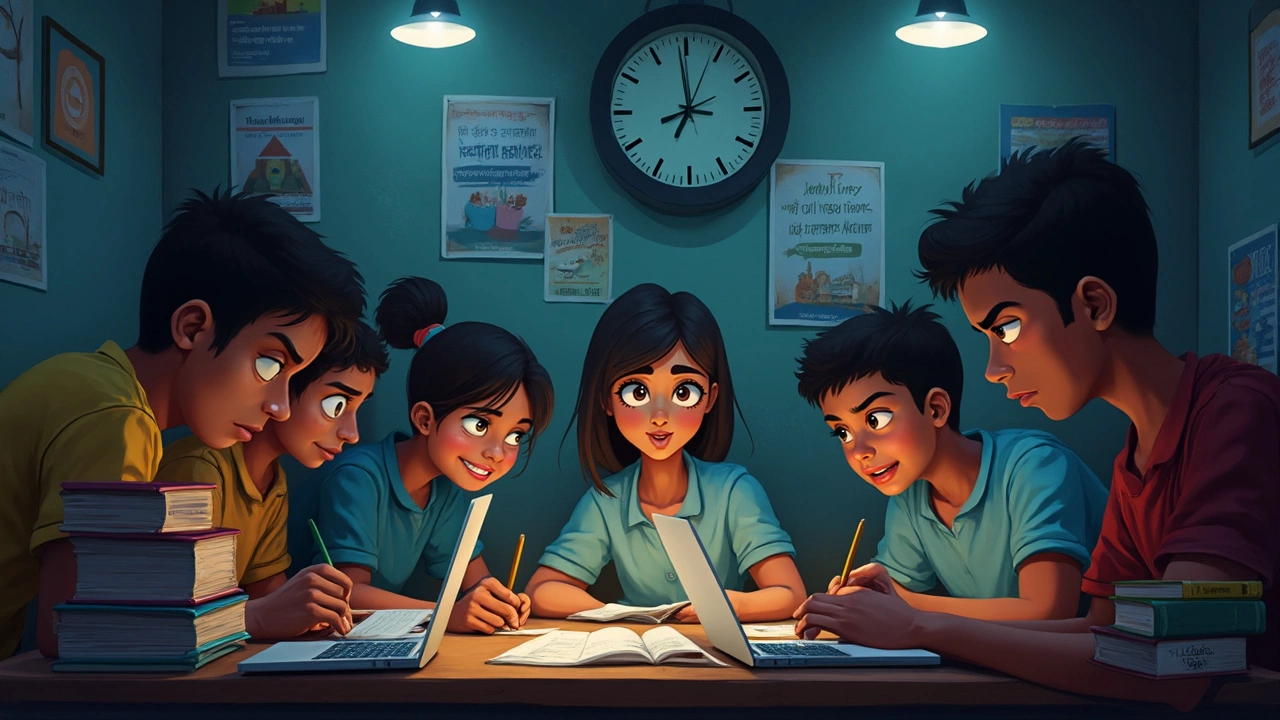
Law Enforcement: Grit Over Glamour
Let’s face it: law enforcement jobs like IPS officers, state police, and CBI aren’t as glitzy as TV shows make them look. Real life is tougher, messier, and demands more nerve. If you’re thinking about a most difficult government job, this one is right up there. Officers put in 12-16 hour days and don’t always have weekends off. Shift work makes family time unpredictable, and you can be transferred anywhere—urban, rural, or even conflict zones.
Here’s something that hits home: a 2023 report said over 50% of police officers in India have trouble sleeping due to work stress. Stretched resources and public pressure make things rougher. Officers deal with everything from street crime and riots to VVIP security and disaster management. It’s not just about chasing criminals—sometimes you’re defusing community tensions or helping during floods in the middle of the night.
| Challenge | Common Example |
|---|---|
| Long hours | Back-to-back night shifts during festivals or elections |
| Physical danger | Mobs, violent protests, criminal encounters |
| Public scrutiny | Every action recorded and discussed on social media |
| Transfers | Ordered to shift state or district at a few days’ notice |
If you're serious about cracking these exams, keep in mind the challenges start after you pass. Mental toughness is a must—not only for handling danger but also frustration and burnout. Here are some practical tips if you’re eyeing a career in law enforcement:
- Focus on fitness as much as books—both are part of the exam and the job.
- Learn people skills. You’ll deal with high emotions from victims, suspects, and the public daily.
- Brush up your knowledge of laws, current events, and local languages.
- Talk to serving officers. Their stories give a reality check you won’t find in any textbook.
If you want a job that really tests you, law enforcement is about grit, not glamour. You’ll never have a boring day—but don’t expect any part to be easy.
Defense Services: Real Risks, Real Sacrifice
If you're searching for the most difficult government job, it's impossible to skip the defense services. These roles aren’t just demanding—they can get straight-up life-threatening. Whether it’s the Army, Navy, or Air Force, the job isn’t about glitzy uniforms or parades. It’s about real sacrifice, split-second choices, and working in places you never imagined. In India, around 1.4 million people serve in the armed forces, making this one of the world’s largest military forces. Pretty wild, right?
Think about it: soldiers train in boiling deserts, freezing mountains, and cramped submarines. The pay is solid and there’s respect, but you sign up for a life where homesickness, physical injuries, and mental stress are everyday things. Deployment to remote areas isn’t a rare thing—it’s the rule. You’re working holidays, birthdays, and maybe even missing your own wedding if duty calls. Danger is always around the corner.
| Fact | Detail |
|---|---|
| Training Duration | Officers: 1-2 years intense full-time |
| Working Hours | Often 16-18 hours a day during operations |
| Deployment | Remote posts, border zones, and sometimes hostile environments |
| Physical Fitness | Regular tests, strict standards |
It’s not just about physical strength either. You need rock-solid nerves and quick thinking under fire. One study by the Ministry of Defence in 2022 flagged mental stress as a growing issue, mainly due to constant relocations and high-stakes assignments. Soldiers often make tough calls with incomplete info—and there’s no room for guesswork.
The sacrifices don’t go unnoticed. Here’s how a retired Colonel once put it:
“Service in the armed forces is more than a career—it’s a commitment to put others before self, no matter the personal cost.”
If you’re eyeing a defense career, remember: you need more than just marks in a test. Train your mind and body, stay adaptable, and get ready to build grit like nowhere else. Most people can only imagine that kind of pressure.
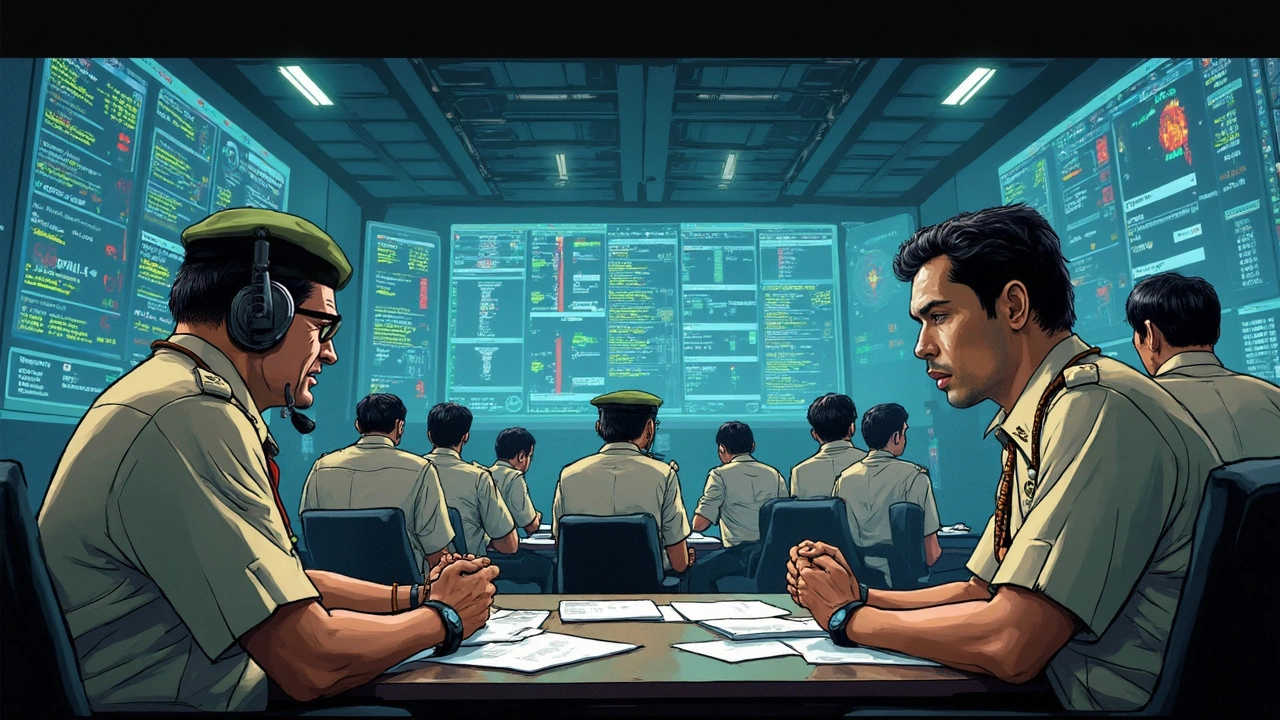
How to Prep for High-Pressure Government Jobs
Tough government jobs like IAS, IPS, and defense services are not for the faint-hearted. Prepping for these most difficult government job exams, and more importantly, the real-life work after you pass, needs a different mindset. Here’s what actually makes a difference.
- Study Smarter, Not Just Harder: Don’t just keep rereading big textbooks. Use current affairs apps, watch daily news breakdowns, and take mock tests. For the UPSC, for example, questions change every year—so following last year’s trends is key.
- Practice Real-Life Problem Solving: If you want to be in law enforcement or administration, start solving case studies. Many exams, like UPSC Mains and SSC CGL, already include these. But even after selection, you’ll face real cases where books won’t help—thinking quick on your feet is huge.
- Master Stress Management: Data shows that nearly 40% of Indian civil servants feel burned out in their first few years. Learn basic stress-busting routines—short walks, breathing exercises, and downtime away from screens. You won’t last long if you’re always running on empty.
- Group Study and Peer Motivation: It’s way easier to stay motivated if you have study buddies or join online groups. You’ll know when you’re slacking and can squad up for practice interviews. In-person or virtual, both work.
- Routine Fitness: Especially for defense services and police, fitness is part of the deal. For jobs like the Indian Army or IPS, you’ll face physical rounds as tough as the written ones. Start with simple daily workouts—jogging, bodyweight exercises, and stretching.
If you want actual numbers, check out this quick comparison of the competition and stress levels for some known tough government jobs:
| Job | Selection Ratio | Common Stress Points |
|---|---|---|
| IAS (via UPSC) | 0.2% (1 out of 500) | Public handling, tight deadlines |
| IPS | 0.1% (1 out of 1000) | Law & order pressure, mobility |
| Indian Army Officer | 1% (1 out of 100) | Physical risk, long postings |
| Public Prosecutor | Less than 1% | Heavy case load, courtroom drama |
No matter what, if you’re prepping for a government job preparation marathon, don’t wait for motivation to magically show up. Make tiny habits—reviewing notes every morning, testing yourself with quizzes, going for short walks, even prepping meals in advance. The grind pays off if you show up day after day.
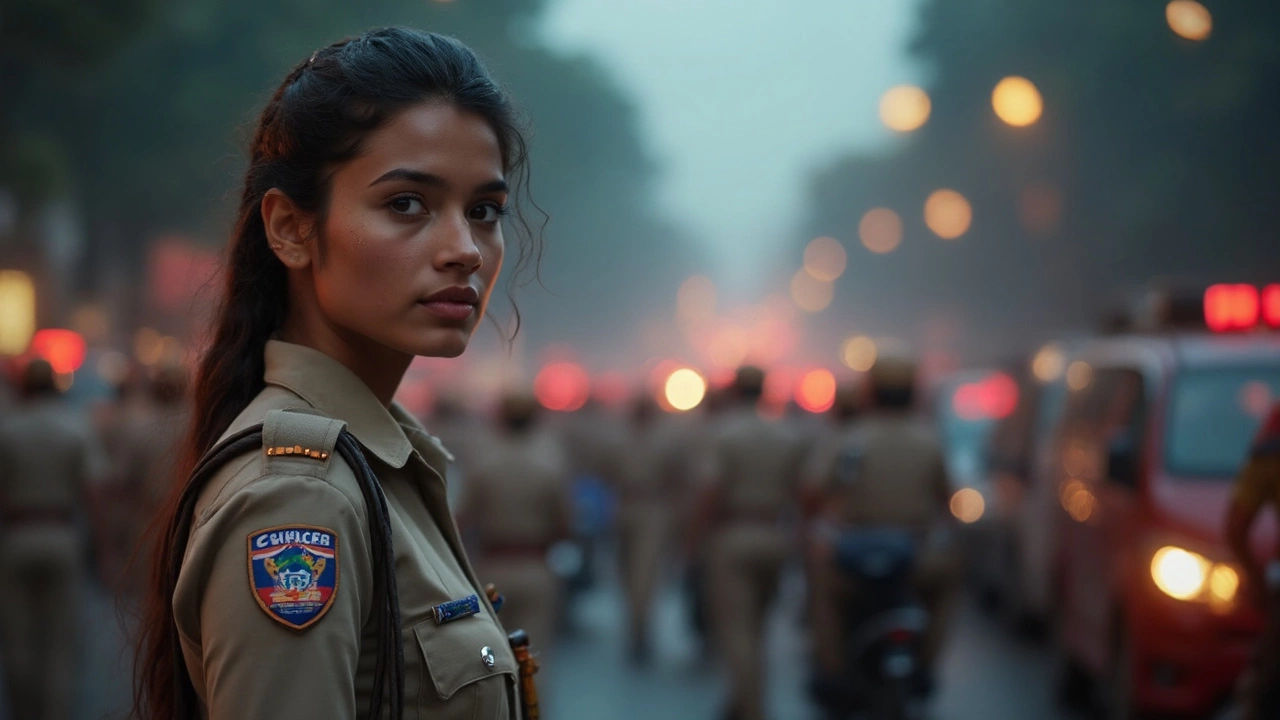
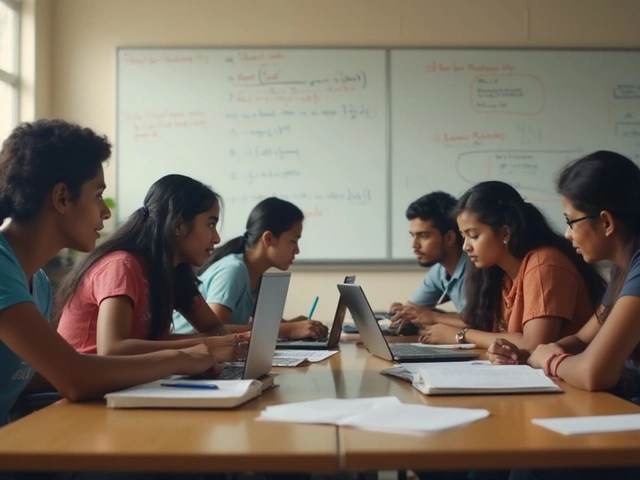


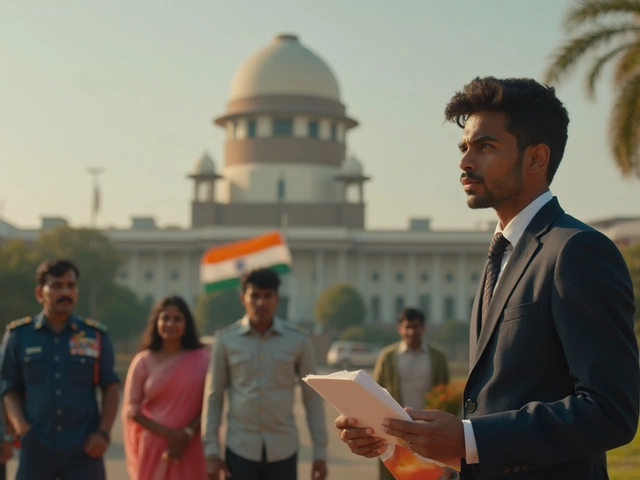

Write a comment: